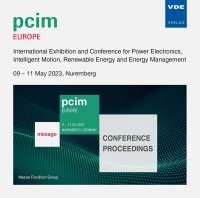Experimental Validation of a Semi-Two-Stage Traction System Based on the NPC Multi-Source Inverter for Fuel Cell Rail Vehicles
Konferenz: PCIM Europe 2023 - International Exhibition and Conference for Power Electronics, Intelligent Motion, Renewable Energy and Energy Management
09.05.2023-11.05.2023 in Nürnberg, Germany
doi:10.30420/566091035
Tagungsband: PCIM Europe 2023
Seiten: 6Sprache: EnglischTyp: PDF
Autoren:
Fedele, Emanuele; Iannuzzi, Diego; Spina, Ivan (Dipartimento di Ingegneria Elettrica e Tecnologie dell’Informazione, Universita degli Studi di Napoli Federico II, Italy)
Inhalt:
Hydrogen trains have been increasingly considered as an alternative to diesel-powered trains on long-range medium-traffic routes, for which electrification lacks economic attractiveness. In fact, very long autonomies can be reached by hydrogen fuel cell plants with a single refueling. In fuel cell systems, a high-power dc/dc converter must be included to boost the voltage of the fuel cell, which can vary significantly from no load to full load condition. In this paper, a semi-two-stage traction system for hydrogen-powered rail vehicles is investigated and tested. The architecture employs an NPC multi-source inverter as main traction converter to provide an additional connection between the fuel cells and the traction motors. With the coordinated control of the two power converters, the boost converter can be partly bypassed during operation, and its peak power rating and round-trip energy losses reduced. Experimental tests on a lab prototype show significant reductions in the peak current and round-trip energy processed by the dc/dc converter, with expected benefits in terms of weight and volume of its passive filters and heatsinks.


